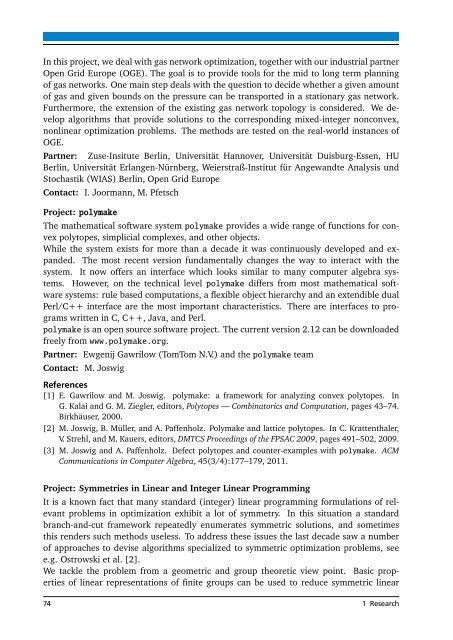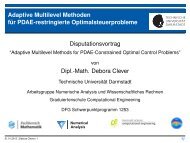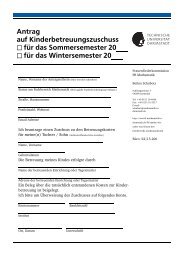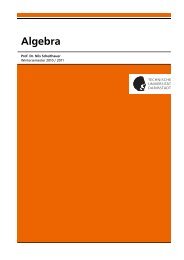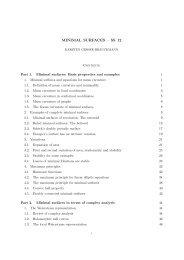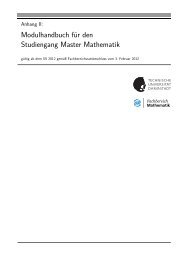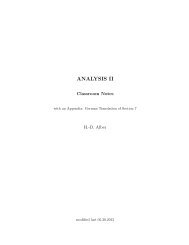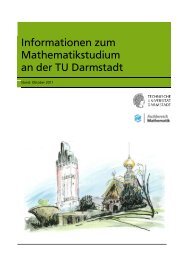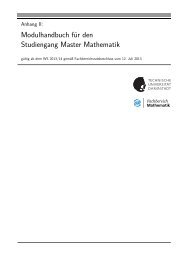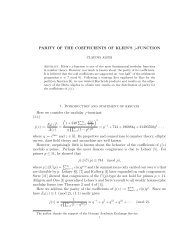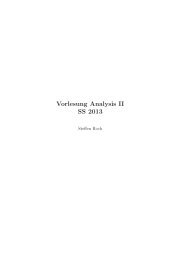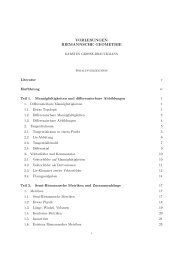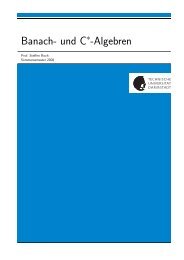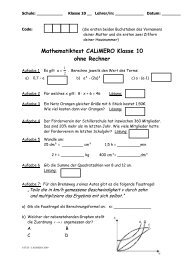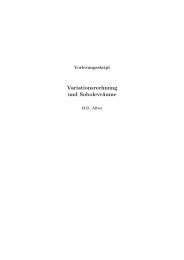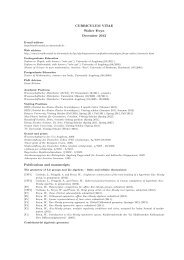Biannual Report - Fachbereich Mathematik - Technische Universität ...
Biannual Report - Fachbereich Mathematik - Technische Universität ...
Biannual Report - Fachbereich Mathematik - Technische Universität ...
You also want an ePaper? Increase the reach of your titles
YUMPU automatically turns print PDFs into web optimized ePapers that Google loves.
In this project, we deal with gas network optimization, together with our industrial partner<br />
Open Grid Europe (OGE). The goal is to provide tools for the mid to long term planning<br />
of gas networks. One main step deals with the question to decide whether a given amount<br />
of gas and given bounds on the pressure can be transported in a stationary gas network.<br />
Furthermore, the extension of the existing gas network topology is considered. We develop<br />
algorithms that provide solutions to the corresponding mixed-integer nonconvex,<br />
nonlinear optimization problems. The methods are tested on the real-world instances of<br />
OGE.<br />
Partner: Zuse-Insitute Berlin, Universität Hannover, Universität Duisburg-Essen, HU<br />
Berlin, Universität Erlangen-Nürnberg, Weierstraß-Institut für Angewandte Analysis und<br />
Stochastik (WIAS) Berlin, Open Grid Europe<br />
Contact: I. Joormann, M. Pfetsch<br />
Project: polymake<br />
The mathematical software system polymake provides a wide range of functions for convex<br />
polytopes, simplicial complexes, and other objects.<br />
While the system exists for more than a decade it was continuously developed and expanded.<br />
The most recent version fundamentally changes the way to interact with the<br />
system. It now offers an interface which looks similar to many computer algebra systems.<br />
However, on the technical level polymake differs from most mathematical software<br />
systems: rule based computations, a flexible object hierarchy and an extendible dual<br />
Perl/C++ interface are the most important characteristics. There are interfaces to programs<br />
written in C, C++, Java, and Perl.<br />
polymake is an open source software project. The current version 2.12 can be downloaded<br />
freely from www.polymake.org.<br />
Partner: Ewgenij Gawrilow (TomTom N.V.) and the polymake team<br />
Contact: M. Joswig<br />
References<br />
[1] E. Gawrilow and M. Joswig. polymake: a framework for analyzing convex polytopes. In<br />
G. Kalai and G. M. Ziegler, editors, Polytopes — Combinatorics and Computation, pages 43–74.<br />
Birkhäuser, 2000.<br />
[2] M. Joswig, B. Müller, and A. Paffenholz. Polymake and lattice polytopes. In C. Krattenthaler,<br />
V. Strehl, and M. Kauers, editors, DMTCS Proceedings of the FPSAC 2009, pages 491–502, 2009.<br />
[3] M. Joswig and A. Paffenholz. Defect polytopes and counter-examples with polymake. ACM<br />
Communications in Computer Algebra, 45(3/4):177–179, 2011.<br />
Project: Symmetries in Linear and Integer Linear Programming<br />
It is a known fact that many standard (integer) linear programming formulations of relevant<br />
problems in optimization exhibit a lot of symmetry. In this situation a standard<br />
branch-and-cut framework repeatedly enumerates symmetric solutions, and sometimes<br />
this renders such methods useless. To address these issues the last decade saw a number<br />
of approaches to devise algorithms specialized to symmetric optimization problems, see<br />
e.g. Ostrowski et al. [2].<br />
We tackle the problem from a geometric and group theoretic view point. Basic properties<br />
of linear representations of finite groups can be used to reduce symmetric linear<br />
74 1 Research


